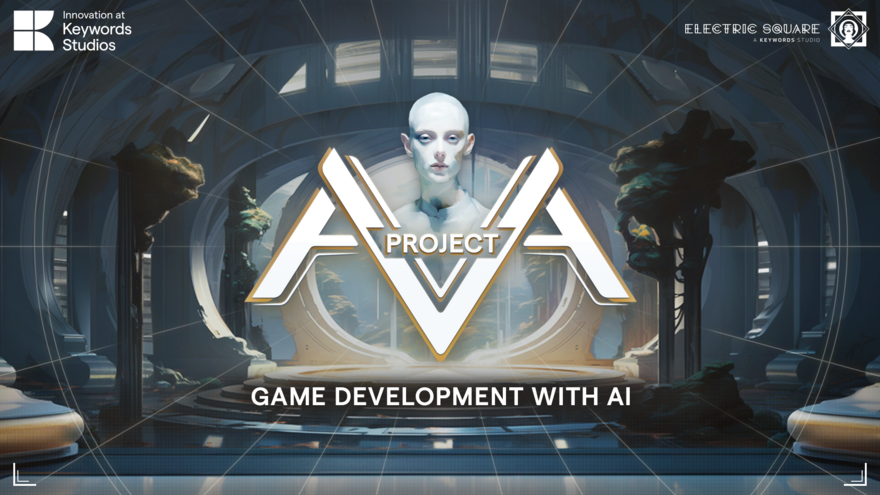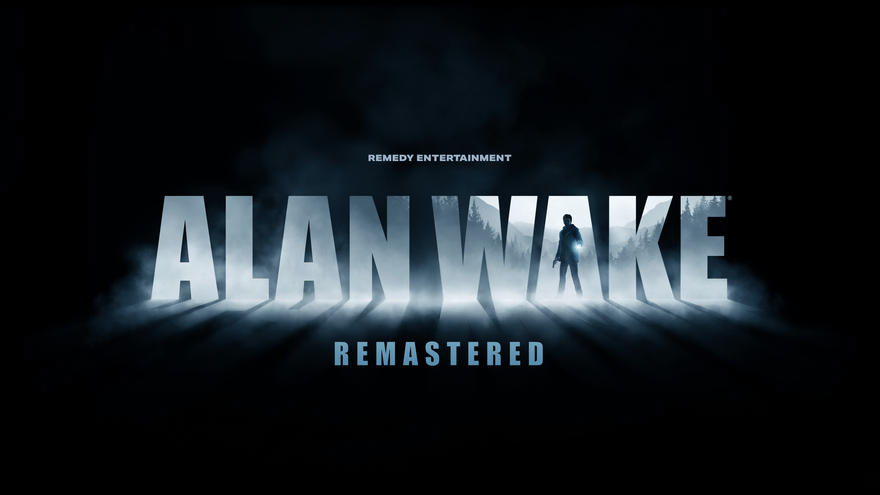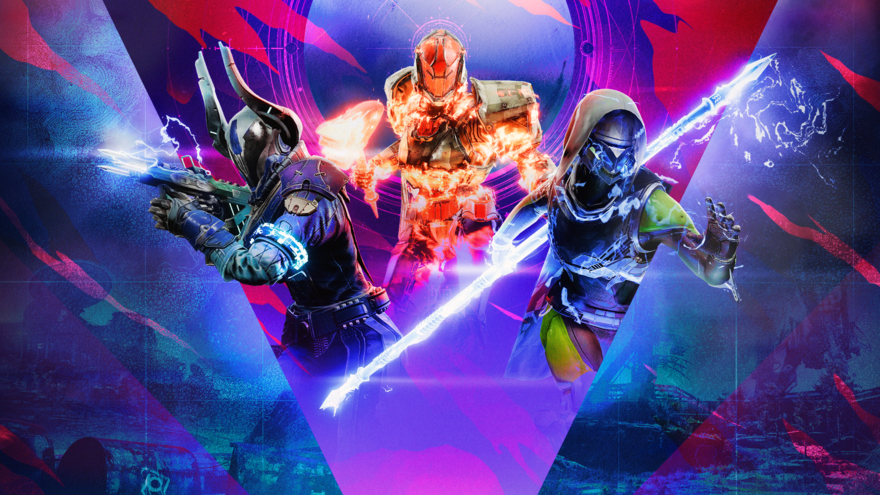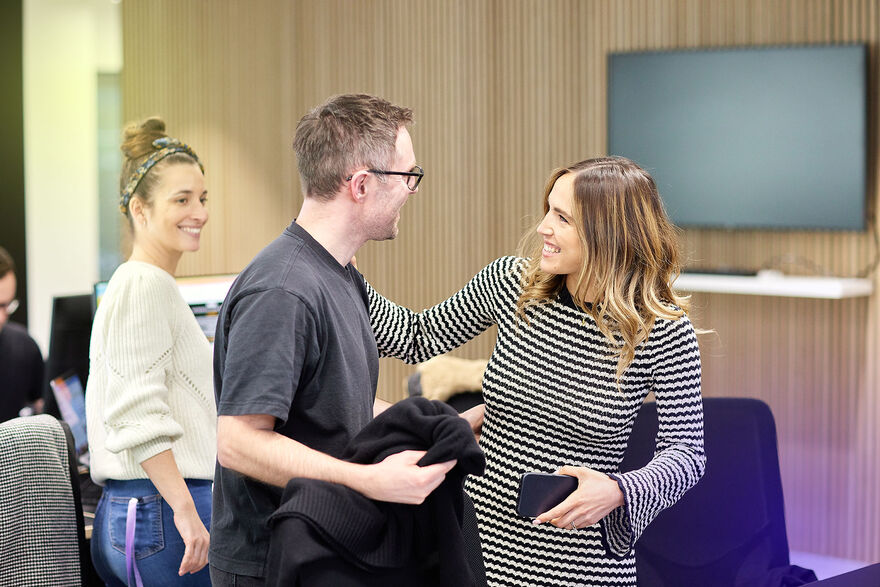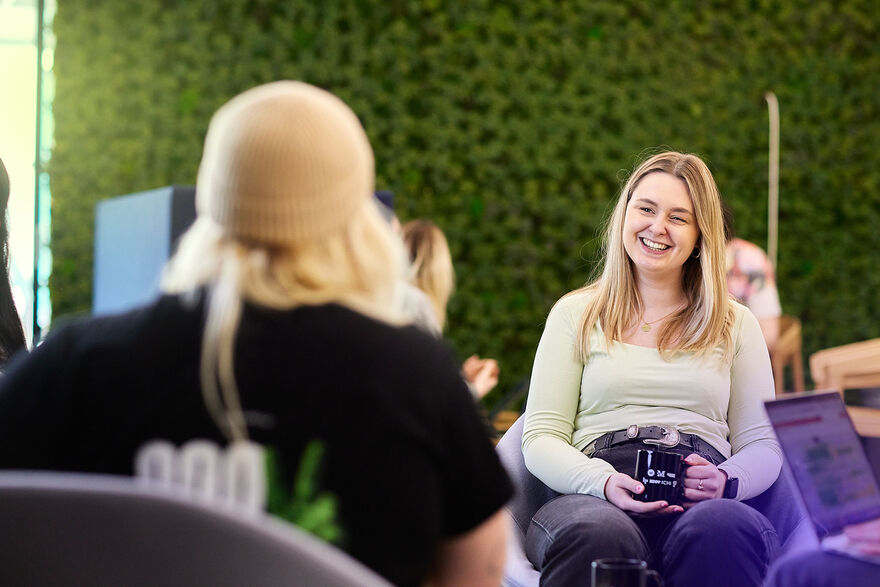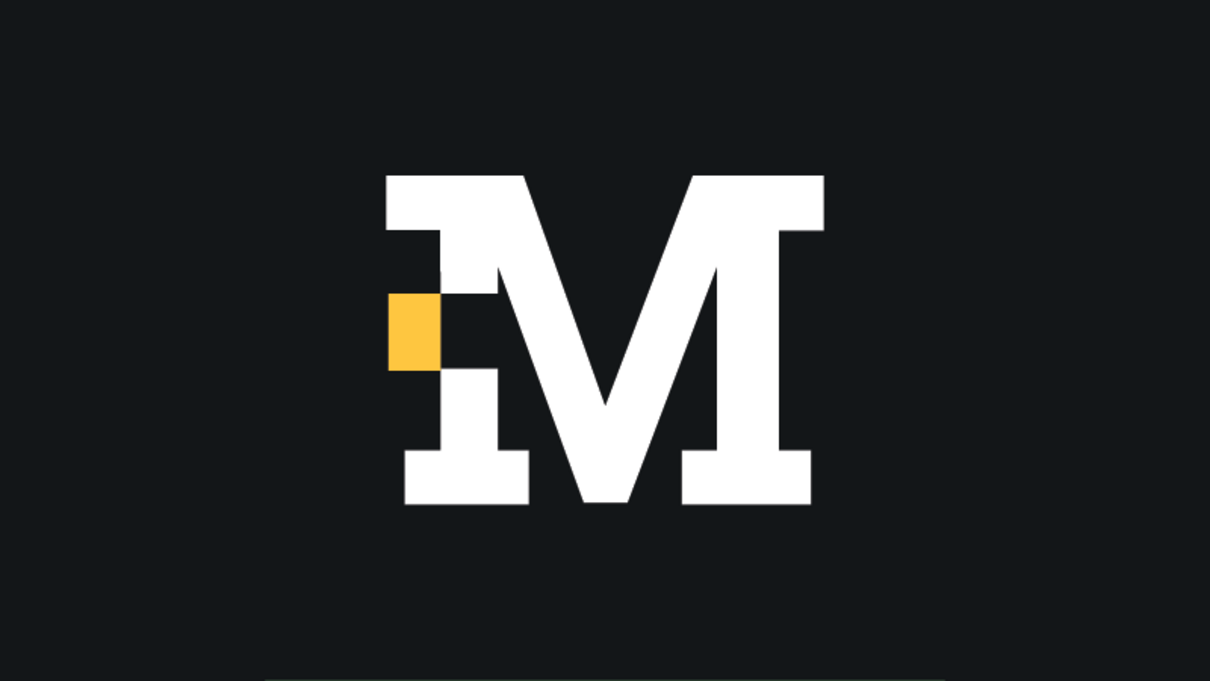Meet Kim Forrest from Tantalus South in Adelaide

Staff Spotlight - We caught up with Kim Forrest, Head of Studio at Tantalus South in Adelaide, Australia, to discuss his journey into the video games industry, the studio’s plans for the future as well as the importance of a healthy work culture.
What inspired you to enter the video games industry?
When I look back on it, the core thing that pulled me into the industry was my wholehearted love of video games. That connection started the day my family got a Commodore 64 for Christmas in the mid-1980s (not super original, I know). Other inspirations include my love of pop-culture in general, the desire to build cool things that millions of people fall in love with (and are exhilarated and enraged by), as well as the dislike for the job I had when I was trying to break into games!
I was working in a job I didn’t like, but I enjoyed the people side of what I was doing. In my spare time I was playing video games relentlessly, toying with level design with my limited technical abilities and thinking up mechanics and ideas for new games. I’m assuming if I was to look back on those ideas now, they’d be hilariously lame.
All the above factors still keep me inspired after all these years. And over the course of the journey, I’ve come to understand and appreciate that what has me jumping out of bed every morning is the opportunity to work with incredibly smart and interesting people. Building success together and experiencing the highs and lows of game dev together.
Some people say ‘don’t make your hobby your job’. Respectfully, those people are wrong, you just have to be ready for the journey!
How has the games industry in Australia evolved during your career?
I’ve been in the industry for 22 years. A LOT has changed and evolved over that time. It feels like our industry evolves at a rate of dog years compared to other industries. When I started out, there were very limited opportunities in terms of jobs and education as a pathway into games. Having said that, there were a few games companies in Australia, including Tantalus Media all those years ago! I think Tantalus may be the longest existing studio in AU. If not, it must be close to it!
Of course, a computer science degree was one way in, and art/screen degrees also ran small portions of their courses around game art. But really, even if you were a qualified programmer or artist, you had to show self-starting ability and build a network to get your opportunities. I think this is still true today, but over the last decade or so a lot more avenues are available around specific game dev education.
The major evolution points worth highlighting were the big shifts. From bigger studios doing console/PC in the 1990s and 2000s into a more diverse range of development models. I’m sure some of this is unique to the Australian industry, but I’m guessing there are many commonalities in the global industry too. By the time the GFC hit Australia, there were several major studios working on big titles. That big money shift, the accessibility of Unity as well as the arrival of the smart phone pulled a large part of the dev scene and the educators towards mobile. Thankfully, for the diversity of the Australian games landscape, Tantalus Media, Wicked Witch and a few others continued down the path of console/PC. Things are now shifting further back in this direction. I think this gives greater balance between mobile dev, small team console/PC indie dev and the bigger companies like us, focusing on AAA and working with the biggest publishers on the planet! From where I sit, it feels like a healthy eco system now. Probably the healthiest it has ever been.
Tantalus CEO Tom Crago sat down with us at Gamescom to discuss Keywords' growth in Australia.
How is the video games industry in Australia different to other countries?
I don’t think the industry is that different right around the world. It’s getting to a place now where calling it the ‘gaming industry’ is trying to encompass too much! It’s such a wildly diverse landscape of game types, business models, development models and angles that it’s hard to consider it all one industry. From free-to-play mobile to AAA single player narrative to VR to MMO GaaS, it’s just ridiculously broad. It’s one of the things about Keywords Studios that feels so strong. We’re involved in every one of the vastly different ways to make games. It’s super impressive!
So, in terms of the games being made across Australia it’s almost as wildly varied as what the rest of the world is doing, but that’s just how the industry we’re in has evolved. It’s not a geography thing. And having worked with publishers and developers from so many different countries and meeting with so many different people at conventions, we’re all very similar in so many ways. We want the same things from the hard work and love we put into our games. We struggle with the same problems and challenges from tech to design to art to people and personalities. It’s quite amazing the sense of comradery you get from those moments.
In summary, I don’t think that the people and the problems we are solving are that different right around the game dev globe. One major difference is that there’s not a lot of big AAA original IP being done here now. Perhaps that will start to change over coming years? Also, I guess maybe Aussies come across as a little more laid back… or is that just the way we talk? Or maybe we don’t come across that way? Ok, I’ll stop.
What are some of the things you like about living and working in Adelaide?
I should start by saying South Australia is my home state, so I am super biased.
- To quote a friend of mine, ‘Adelaide is life on easy mode!’ We have the perks of a big city, but we feel like a small town. Everything is close and it’s easy to get around! (dropping accidental rhymes)
- Adelaide has so much talent. Some of the brightest most creative minds I’ve worked with are from here and are still here. Some of them are in my studio right now!
- The food and wine! We have some of the most amazing wine regions in the world (drink in moderation). Red or White, our wineries are second to none. Our restaurants and bars are world class. The Central Markets (5 minute walk from Tantalus South studio) has amazing produce and lunchtime options.
- I have 3 kids at school age. We live in what I call “the Henley Beach village”. We can walk to one of the most beautiful and safe beaches in the world and everything we need is here. And the people in our village are lovely. The suburbs all around Adelaide are all like this (but if you want beautiful beaches come to the west!)
- The Adelaide Oval. Up there with the best boutique stadiums in the world, I spend a lot of time there for AFL, cricket, soccer, rugby and concerts. It’s literally one of my favourite places on earth!
Tell us a bit about the Adelaide studio. What does the studio specialise in, how does the studio operate and how would you describe the culture?
At Tantalus South, we’re building a very experienced and stable technical team. We’re shaping it around the DNA of Tantalus Media in Melbourne. We’re looking to build on the world class reputation that they have created as one of the best porting and co-dev studios in the world. And we’re looking to leverage the clout and network of Keywords Studios to help build that too.
With the team we’re assembling right now I can safely say we are very strong in the technical areas of physics, graphics, and optimization. We will stand out as a studio that specializes in technical art and look forward to providing expert support across the entire Keywords organization in these areas.
Our core reason for existence is to ship great games consistently at the highest level of quality possible. We have a strong focus on being a successful business as a studio in our own right and we’re looking to grow the team steadily and sustainably over coming years to support this. We keep our processes light and effective to support the progress of our games. Progress over process.
We’re building our culture around some key values including honesty and trust, an eagerness to learn and improve ourselves, and dependability as a development studio. We’re creating a collegial environment that allows our experts to steer the decisions that set us up for success. Setting our people and projects up for success is at the core of what I do day to day. I want Tantalus Southerners to go home every day being proud of the work they have done and the impact they have had whether that’s related to the games, interactions with their direct team members, the broader keywords group or our external partners. We’re really trying to build a culture of job satisfaction through ownership of the work and the pride in the impact people have every hour of every day.
Melbourne International Gamesweek 2022 saw Tantalus, Wicked Witch, Mighty Games and Keywords in Australia take part in our first appearance at Game Connect Asia Pacific (GCAP), Australia’s premier professional development and networking event for the game development industry.
What are some of the things you like about working with Keywords Studios
It’s still early days, but some obvious things stand out to me so far:
- The versatility and diversity of business offerings that the global Keywords organisation offers across the entire industry is exciting to me. The company already has such a huge importance to so many parts of the industry and I can only see this growing over coming years with so much on offer across so many varied services.
- The various cultures from all over the world that come together to make the company what it is. It’s proof that borders are just lines on a map and people from everywhere have so much good to contribute. I look forward to working with many of you!
- The feeling that I’m being empowered to build the studio that I think will best deliver success. This is a unique opportunity allowing me to guide the culture and succeed or fail by my own decisions and the team I have built. I feel supported by my leaders and believe we’re setting up for success.
What elements of the video games industry do you see evolving in the future?
I think the way teams are structured will continue to evolve. The pandemic forced dev teams to work remotely which broke down some barriers to people working with different teams and people. I think this will continue to evolve over the coming years to make game development even more accessible to people in places that may not have had the opportunity before.
In terms of dev pipeline, I think AI and automation will play a huge role. Some of the innovations we’re seeing from our own Mighty Games Group in Melbourne show the power of automating CI and QA, even down to audio testing and things that previously have been done by human hands. The scalability is exciting. Add to that some of the experimentation I’ve seen going on using AI art generators for initial idea generation and feeding concept artists with new ideas. It’s truly mindboggling. I think this will become more commonplace over coming years.
In terms of gameplay, UGC is a huge part of the future of games. Watching the way players engage with UGC in different ways in games like Overwatch, Valorant, Track Mania and Fortnite through to completely different audiences like Roblox and Minecraft... UGC is a huge part of the gaming landscape’s future. Designers giving players the accessible and usable tools to create great gameplay that can be curated by other players is key to the success of this. The possibilities are literally endless!
What advice would you give to someone considering a career in the games industry?
Being ‘into’ video games and working in video games are not the same thing. Working in games is signing up for the idea that almost every day you will be presented with a new problem that you’ve never solved before. So be ready for anything that might come your way! And check your ego at the door please.
If you are interested in a role at Keywords in Australia, you can find open positions on our Careers page.
